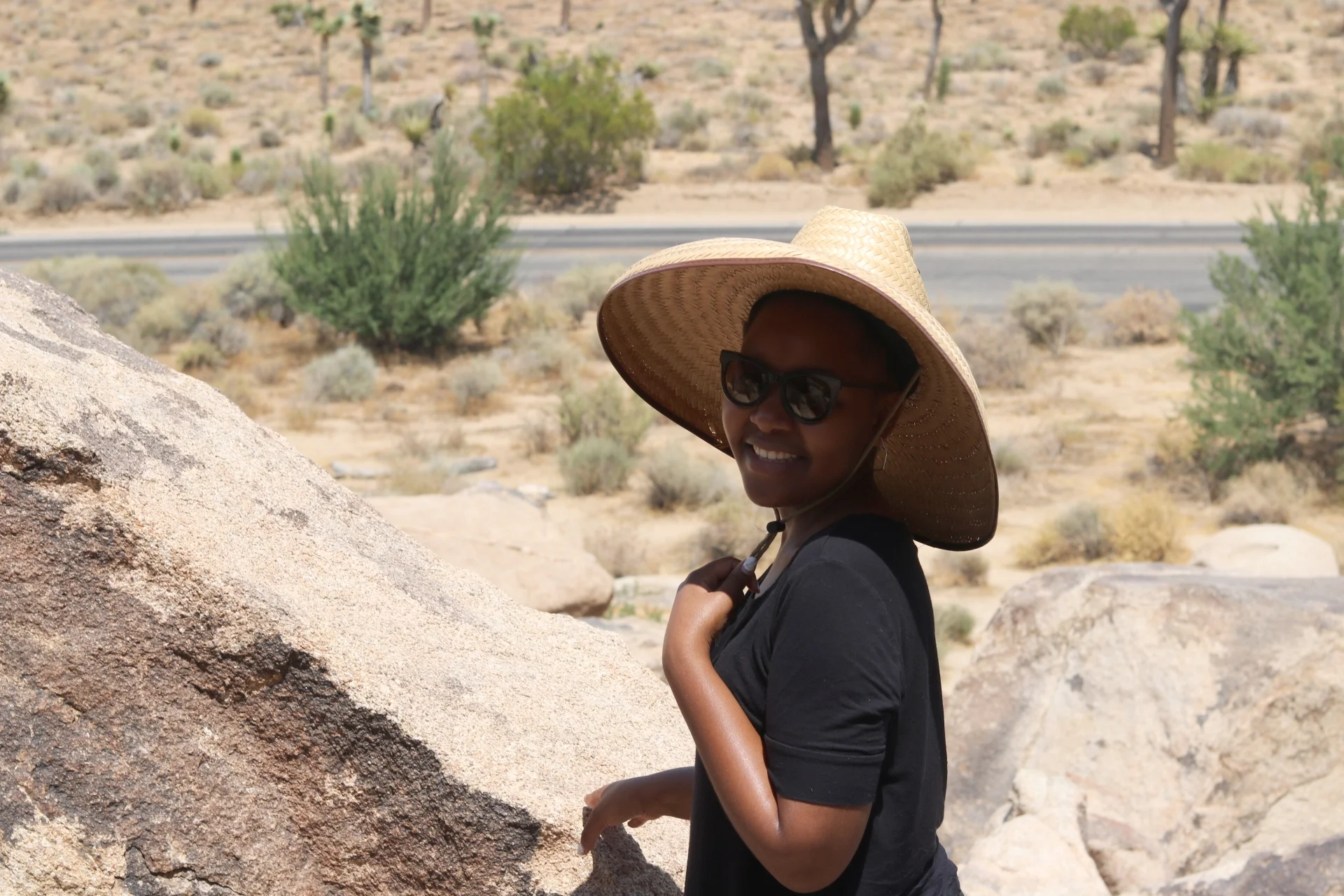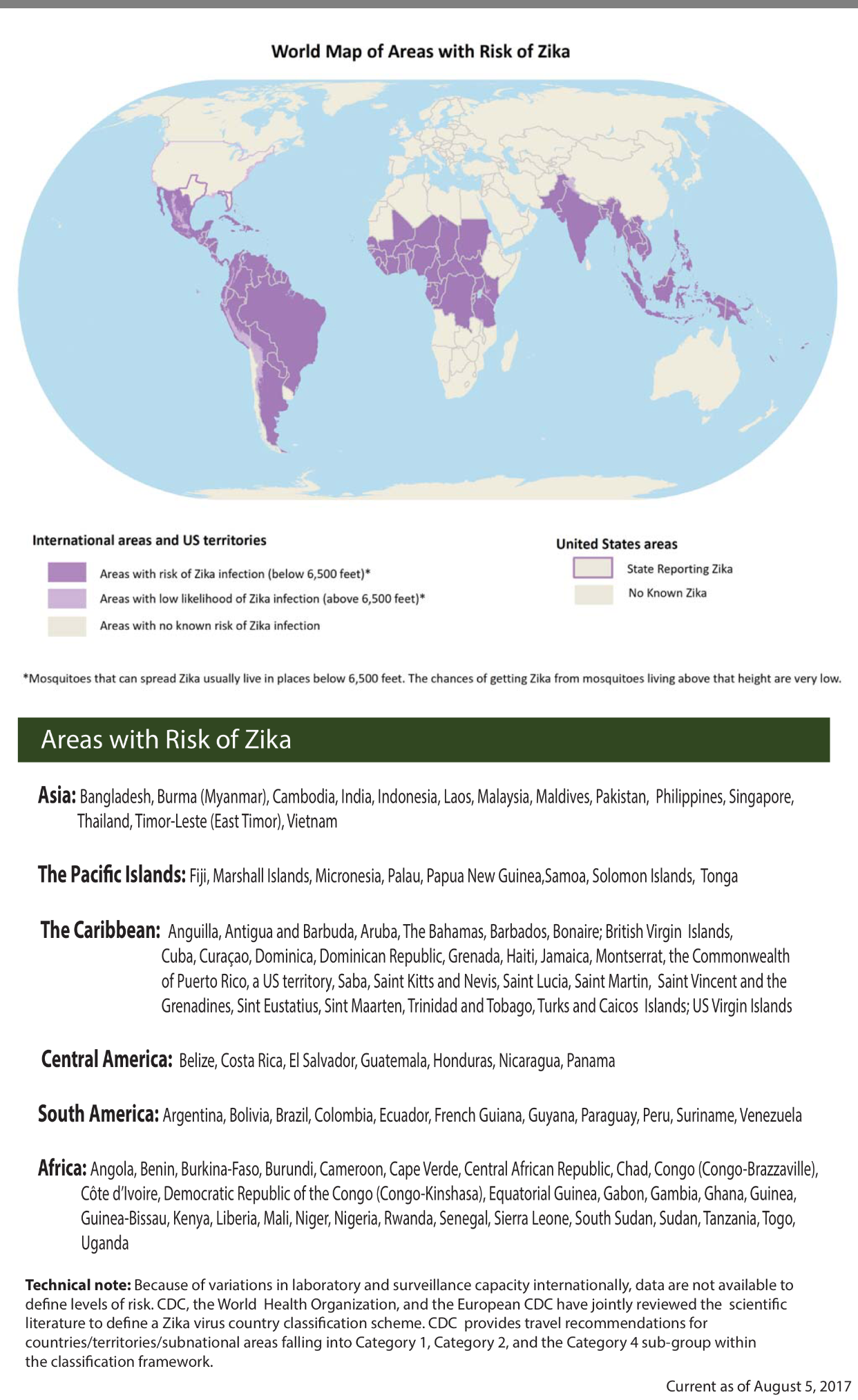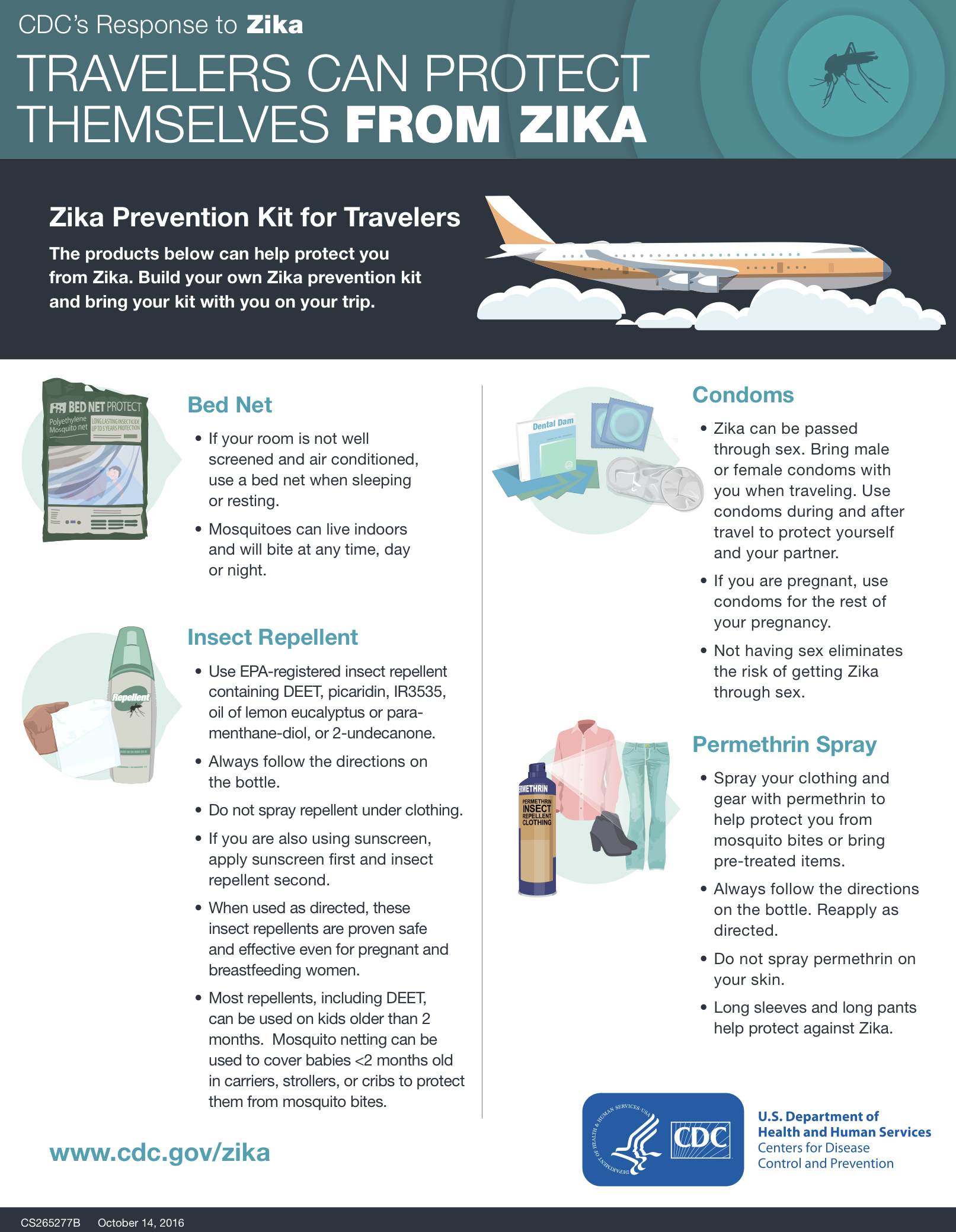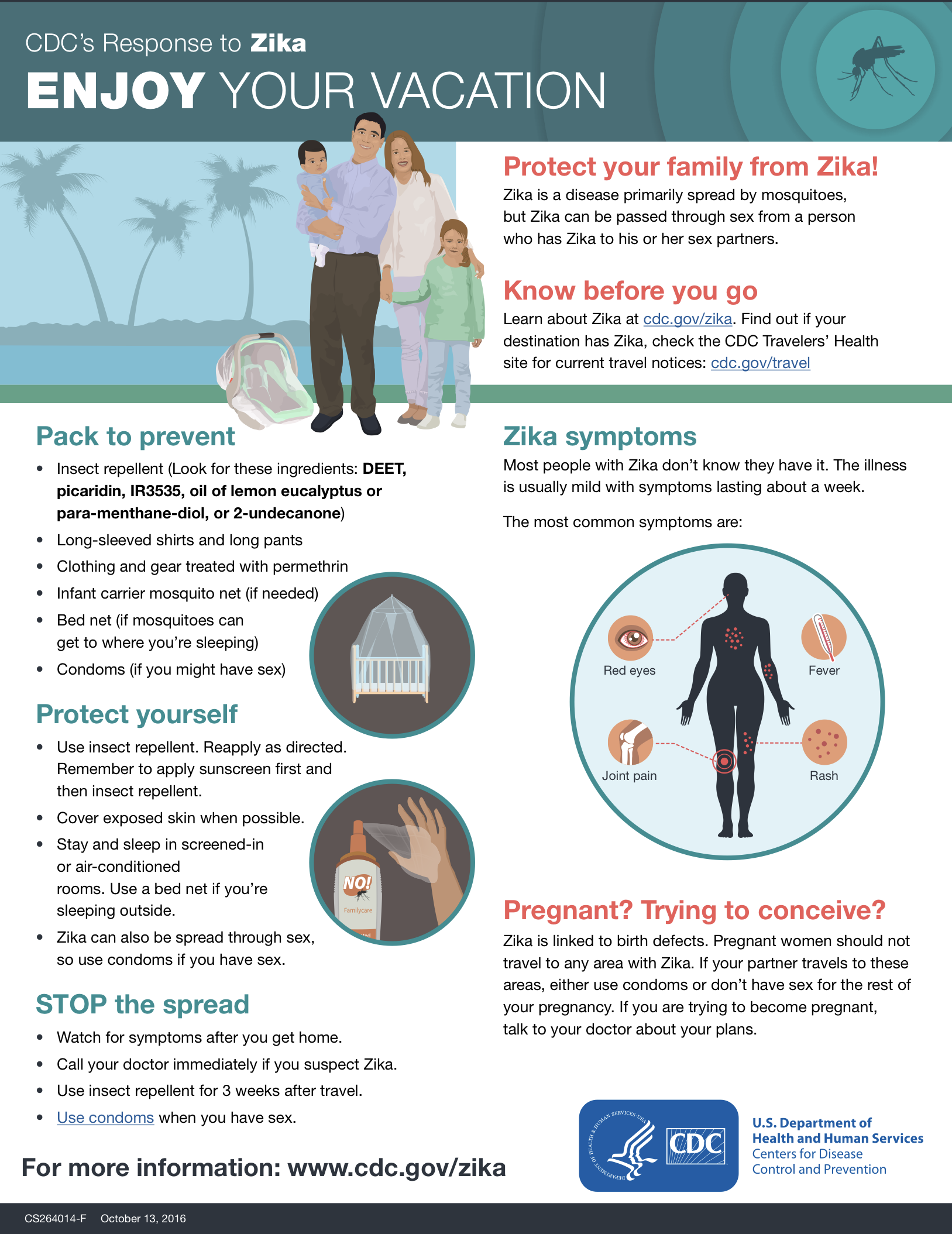Travel Health: Zika and Mosquitos
Travel Etiquette with the CDC
Hey lovelies! When I first began writing this article, it was last week in Seattle; the last day of my summer travels. I feel it is important to bring to my blog some travel information in regards to health! This summer has brought me a lot of adventure. I've been fortunate enough to fulfil a bucket list goal of mine which was just to spend the summer traveling the USA. I actually was supposed to head to Africa a month ago but my new passport was not in yet so I remained local instead. This summer I've been to Chicago, Michigan, Washington, Oregon, California, New York, and Florida. It wasn't until I was in Florida I learned about the prevalence of Zika in the United States and figured that it's best I talk about it! Like Malaria, Zika is a mosquito borne illness which has been linked to devastating consequences in children born of Zika infected mothers. Scroll down for more...
The Centers for Disease Control (CDC) is a government organization headquartered in Atlanta, GA. In healthcare, we look to them to provide national guidelines especially in regards to treating and managing infection and outbreaks. For instance, when Ebola happened, the organization that I worked for at the time as nurse as well as countless others looked to the CDC for universal management protocols. The CDC in healthcare is like the lighthouse that aids in guiding management especially during outbreaks of various diseases. They boast a multi-faceted team of scientists, researchers, physicians, nurses, and more that work tirelessly doing research on various disease states to ensure that the world has a head start on how to manage care going forward. In the last couple of years since the initial outbreak, Zika has become a hot topic especially in regards to pregnant women and unborn fetuses. There is a strong correlation between Zika infected pregnant women and an increased incidence in birth defects. This is why Zika has become a hot topic for the CDC.
SYMPTOMS AND TRANSMISSION
A major summer 'thing to do' on many individuals lists is traveling. Most of us enjoy trips to warmer climates were we can bask in the warm rays of the sun in our bikinis sipping on a cocktail! It is very important that we are aware of the risks that come with traveling which are usually specific to location. According to the CDC, Zika is a mosquito borne illness that is also spread through sex, in utero from mother to baby, and possibly through blood transfusions. Zika can be asymptomatic meaning without symptoms. For those who have symptoms you may experience fever, rash, headache, joint pain, red eyes, and muscle pain. Unlike Malaria, this illness typically does not require hospitalization and very few people die from it. Also, once you get the illness, you are most likely protected from future infections.
AREAS OF HIGHEST RISK
Although Zika is not prevalent in the United States, there have been some reported cases in Florida and Texas. The map above outlines high risk areas. In America, many of us travel to Mexico, The Caribbean, Central and South America during Vacation times. Travel hotspots in these areas include Puerto Rico, Dominican Republic, The Bahamas, The Barbados, Cuba, Turks and Caicos, Costa Rica, Belize, Columbia, Brazil, and Peru. These are some of the areas were there is a high risk of becoming infected with Zika.
MANAGEMENT AND PREVENTION
The key to prevention lies in preventing mosquito bites. The CDC outlines thorough and simple information sheets that discus how to protect travelers. As listed below, the most effective measure is using bug spray. You want to read what kind of bug spray it is to make sure it is effective (EPA-registered insect repellent). Use bug spray not only whilst you are on your trip but for three weeks after the trip. Practice safe sex habits by using condoms whilst traveling and after you get back.
After meeting with CDC representatives and speaking to them over the phone, as a healthcare professional, I felt strongly inclined to bring this important topic to my blog. Many of you know I truly enjoy traveling and tying in the health aspect; that is important to me. Zika is not deadly but its effects to unborn babies can be tragic and grave. It is important to protect yourself with bug spray, bug nets, and condoms. Using bug spray and condoms for three weeks after your come back from your travel protects others. You are less likely to get bitten by a mosquito when you have bug spray on and it lessens the chance for a mosquito to become a carrier and infect others. Three weeks gives the virus time to run its course and clear.
For healthcare workers, it is very important to screen patients who come through our facilities for recent or upcoming travel. When Ebola happened, many facilities added to their protocols questions about travel to West Africa within the last three weeks. To cover all our bases, it is important to ask patients about travel ANYWHERE within the last three weeks and where. For pregnant or may be pregnant patients, not only is it important to ask about their personal travel within the last three weeks but also about travel of their sexual partners. And as always, health promotion is always an excellent mode of prevention so discussing Zika with our patients and providing some teaching is always important.
Thank you guys for stopping by and reading this article! I have posted many articles about various topics but this one is of high importance to me. Mosquito borne illnesses have devastating effects. Growing up in Zimbabwe, I saw people die from mosquito related illnesses such as malaria and I myself had Malaria three times from birth till 11 years old. Unlike Zika, you get VERY sick when you have Malaria. This is another reason why talking about Zika sits close to my heart. Please click here for more information about Zika from the CDC! Special thank you to Ada from the CDC for being my point person and to the CDC for the strong work they commit to on a daily basis. Thank you for the awesome travel materials that you sent for our local Community day held in West Hartford, CT August 20th, 2017 (yesterday). Until next time loves, big Bisous!











A Luxurious Romantic Haven nestled in Swanky Blue Back Square in the Center of West Hartford!